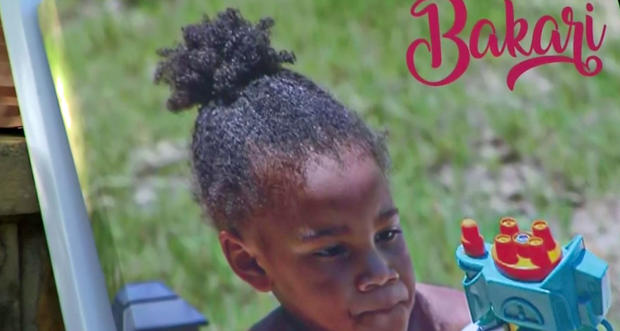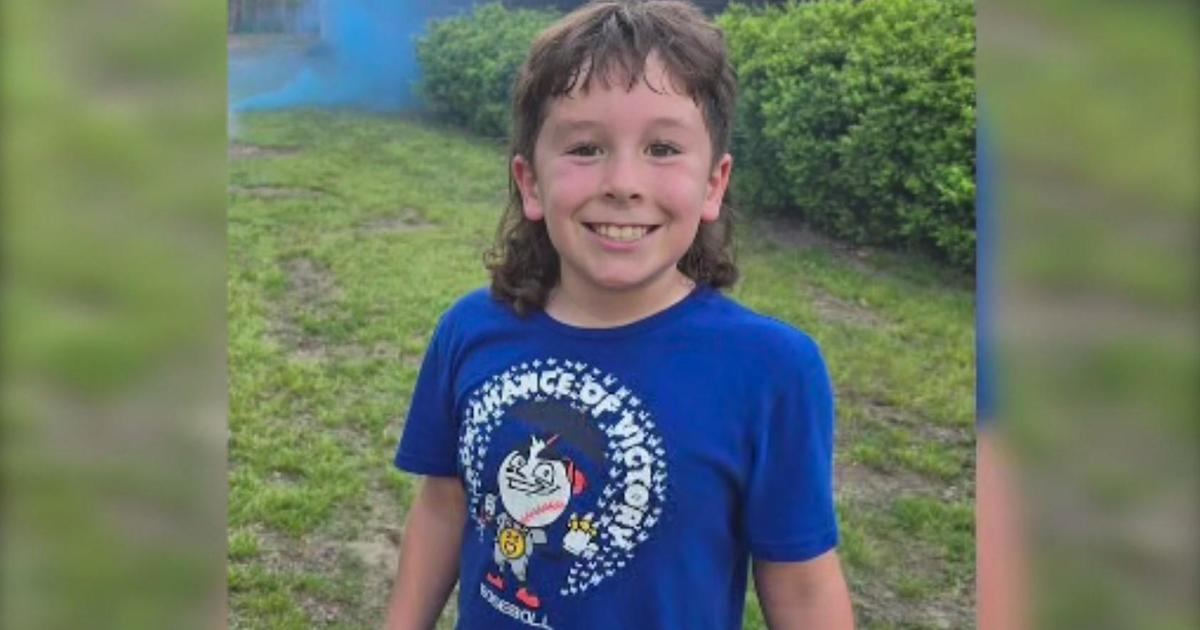'If Your Kid Spikes High Fever After Splash Pad Visit, Go To The ER,' Advice From Mom Of Child Who Died From Rare Brain-Eating Amoeba
ARLINGTON, Texas (CBSDFW.COM) - The parents of a 3-year-old boy named Bakari Williams who died on Sept. 11 from a brain eating amoeba likely contracted at the Don Misenhimer Park splash pad on Sept. 5, are speaking out.
Bakari's mother, Kayla Mitchell described him as "just a big ball of energy." She said he was a very loving big brother to her 1-year-old and another sibling who died last year from SIDS. She detailed some of the symptoms Bakari suffered following the family's usual outing to the splash pad.
"The next morning he had a high fever pushing 103, then from there he didn't want to eat or drink. All he wanted to do was lay down. That is when I knew something was seriously wrong. We had to help him use the restroom. He was so weak," she said.
Bakari's family filed suit against the City of Arlington on October 4.
"Bakari was a loving, sweet, beautiful boy. He didn't deserve to die in this manner. For us this case is about public awareness. The last thing we want is for anyone else to go through this," said the child's father, Tariq Williams.
Claiming the city is responsible for the "preventable tragedy," attorney Steven Stewart said "The city decided to ignore the very safety rules meant to prevent this. The water went untested and untreated for most of the time. When that happens, bad things happen."
Calling the loss suffered by Bakari's family, "unimaginable," Stewart said, "These state mandates are serious. This is about justice and accountability. We want to make sure that all the other splash pads are adequately maintained and serviced. If you're going to offer this kind of public amusement, you have to do it right. It's life and death."
The risk of Naegleria fowleri infection is very low, with only 34 reported infections in the United States between 2010 and 2019, according to the CDC. It infects people when water containing the amoeba enters the body through the nose, the city of Arlington explained in a news release. This typically occurs when people go swimming or diving in warm freshwater places, such as lakes and rivers. In very rare instances, the amoeba has been identified in other sources, such as inadequately chlorinated swimming pool water or heated and contaminated tap water.
A Tarrant County Public Health investigation determined two possible sources for Bakari's exposure to water containing N. fowleri: the family's home in Tarrant County or the Don Misenhimer Park splash pad in Arlington.
On Sept. 24, the Centers for Disease Control and Prevention confirmed the presence of active N. fowleri amoeba at the splash pad from water samples and determined the Arlington site was the likely source of his exposure.
Arlington's chief epidemiologist Russ Jones said the bacteria thrives in water that's recirculated. "When they re-circulate it there really needs to be two different types of disinfection to prevent this from happening," Jones said.
But the lack of disinfection caused it to happen, according to the CDC as well as Arlington city leaders who say they feel personally responsible.
Tarrant County Public Health and the City of Arlington said they were notified Sept. 5, that Bakari was hospitalized at Cook Children's Medical Center with primary amebic meningoencephalitis. The city closed the Don Misenhimer Park splash pad that day, immediately following notification of the child's illness, and proactively closed all public splash pads for the remainder of the year out of an abundance of caution.
"It breaks my heart I'm a father of 4. I'm a grandfather of 5 kids from 2 to 7 years old. I cannot imagine having to bury a child or grandchild like that," said Arlington Mayor Jim Ross.
The city said all of its splash pads will remain off until an investigation and that the water supply was never impacted. Despite Bakari's death, health experts said splash pads can be operated safely as long as they are properly maintained. Health experts said the risk of drowning is still 100 times greater than contracting this infection. They recommend parents ask questions about the splash pads operated in other cities especially if they use recirculated water.
Symptoms of primary amebic meningoencephalitis typically present within nine days of infection, according to the CDC. Other than Bakari, there have been no other instances of this infection reported to Tarrant County Public Health.
As part of its response plan, the City of Arlington is conducting a thorough review of splash pad equipment and supplies, maintenance, and water quality inspection policies, procedures and training to ensure safe recreational spaces for residents and visitors. All city splash pads passed their annual inspection prior to the start of the summer season. Water quality testing data, however, has shown the need for improvement, city officials said.
"We have identified gaps in our daily inspection program," Deputy City Manager Lemuel Randolph said. "Those gaps resulted in us not meeting our maintenance standards at our splash pads. All of the splash pads will remain closed until we have assurance that our systems are operating as they should, and we have confirmed a maintenance protocol consistent with city, county and state standards."
Records from two of the four splash pads, the ones at Don Misenhimer Park and The Beacon Recreation Center, show that Parks and Recreation employees did not consistently record, or in some cases did not conduct, water quality testing that is required prior to the facilities opening each day.
This includes checking for chlorine, which is a disinfectant used to prevent harmful organic matter.
When chlorine level readings were below minimum state standards at those locations, the inspection log did not consistently reflect what action city employees took to bring the chlorination levels up. For example, the logs did not always show how much disinfectant chemical was manually added to the splash pad's water system.
The logs also did not consistently include a follow-up reading to confirm that the water chlorination levels were at acceptable levels after treatment.
Additionally, a review of inspection logs found that water chlorination readings were not documented at Don Misenhimer splash pad on two of the three dates that Bakari visited the location in late August and early September. Documents show that chlorination levels two days before his last visit were within acceptable ranges.
However, the next documented reading, which occurred the day after Bakari visited, shows that the chlorination level had fallen below the minimum requirement and that additional chlorine was added to the water system.




